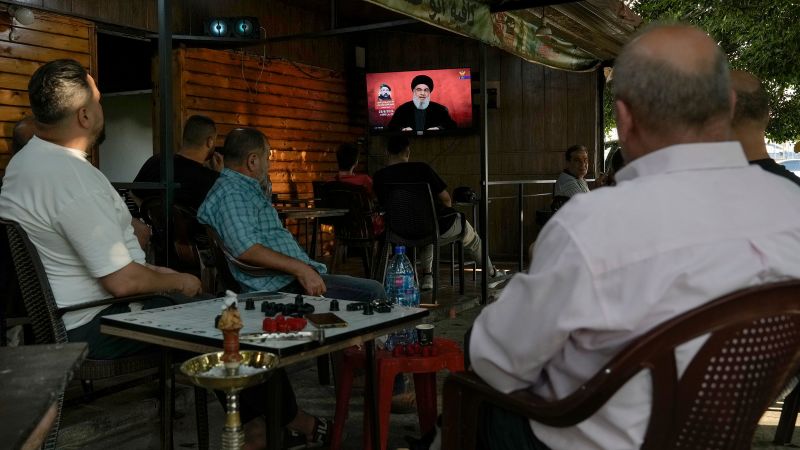After a period of intense cross-border fire between Hezbollah and Israel, US officials are cautiously optimistic that the threat of a larger conflict has been temporarily averted. Hezbollah, as Iran’s most powerful proxy, does not seem to want full-scale war with Israel despite engaging in intermittent attacks along the border. The recent response by Hezbollah to the Israeli assassination of one of its senior commanders appeared calculated to signal proportionality and avoid escalation.
The situation in the Middle East remains tense, with Iran possibly planning a response to the killing of a top Hamas official in Tehran. However, there are hopes that the conflict between Hezbollah and Israel has de-escalated for now. Talks of a ceasefire in Gaza are ongoing, with Hezbollah and Israel returning to their usual tit-for-tat exchanges following the recent flare-up of violence. Despite concerns of a wider war, it seems that both sides are stepping back to assess the situation.
The recent exchanges of fire between Hezbollah and Israel have raised concerns about the potential for a major conflict. Israel preemptively struck Hezbollah launch sites to prevent a large-scale attack, prompting a swift response from Hezbollah. While the attacks did little damage, Hezbollah’s preparedness for a significant assault was evident. Efforts to calm tensions were observed quickly after the attacks, emphasizing the desire to avoid all-out war due to the devastating consequences seen in the past.
Analysts believe that Hezbollah is aware of the repercussions of engaging in a full-scale war with Israel. Memories of the 2006 conflict and the negative impact on Lebanon’s economy and political stability discourage Hezbollah from pursuing an all-out war. Despite the heightened tensions in the region, it is unlikely that Hezbollah would want to engage in a conflict that offers little strategic advantage, especially considering Lebanon’s current challenges.
While speculation persists on potential coordinated responses from Iran and Hezbollah against Israel, there are distinct dynamics at play. Hezbollah’s direct stake in responding to Israel, as seen in the recent events, suggests a more immediate concern for US officials than Iran’s reaction. Iran’s reluctance to engage in direct conflict with Israel is related to concerns about risking a broader regional war. The focus remains on restoring deterrence without escalating the situation further.
US officials are closely monitoring the situation in the region, particularly as the conflict in Gaza continues. The recent events have not derailed ceasefire talks in Cairo, but hopes for a lasting peace agreement are diminishing. Progress is being made in the negotiations, with detailed discussions on specific issues such as prisoner exchanges. While there is optimism from the Biden administration, Israel’s stance on a permanent ceasefire and the growing possibility of a broader regional war remain key concerns for US officials.













